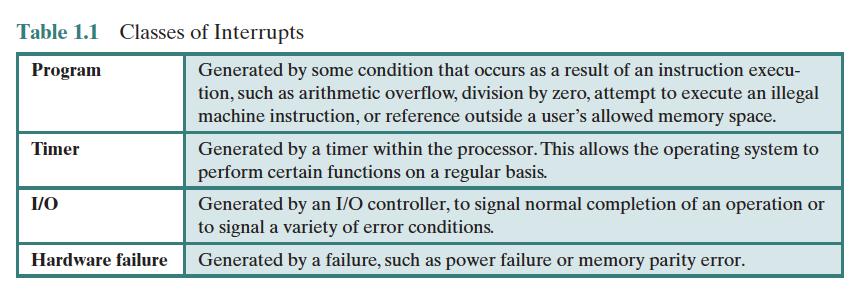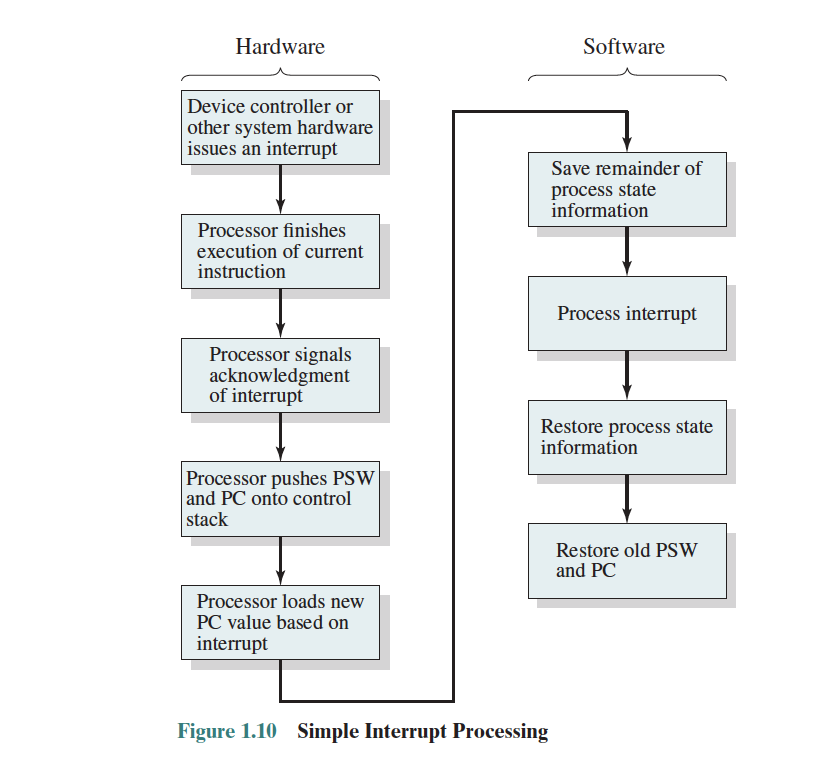Interrupt
Interrupts are one of the most fundamental concepts to understand.
Virtually all computers provide a mechanism by which other modules (I/O, memory) may interrupt the normal sequencing of the processor.
This mechanism is implemented through what is called an “interrupt”.
Difference between interrupt and exception?
Interrupts originate from outside the current execution context, and are typically generated by hardware devices (like I/O operations, timers) or software signals for system calls, whereas exceptions occurs as a result of the program’s execution.
Why interrupts?
Interrupts are provided primarily as a way to improve processor utilization. For example, most I/O devices are much slower than the processor. Imagine if the processor had to wait for the I/O every time…
Concepts
Resuming a process is very similar to how we enter and resume from an interrupt.
The most common types of interrupts:

See Interrupt Processing for a detailed mechanism of how interrupts work (has image below).
